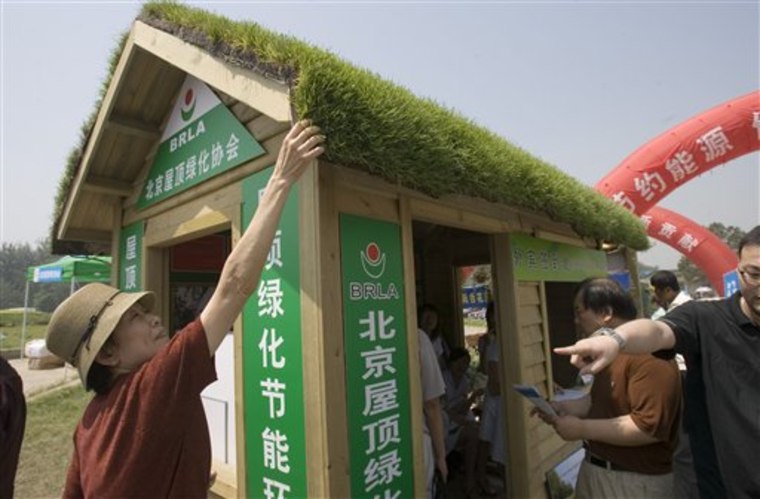China is launching a multibillion-dollar effort to cut pollution and soaring coal and oil demand by raising energy efficiency in apartments and office buildings, a government minister said Thursday.
Authorities are tightening standards and threatening to revoke developers' business licenses if they fail to comply, Qiu Baoxing, a deputy construction minister, said at a news conference.
The communist government has made enforcing environmental and energy standards a priority in an effort to clean up damage from its two-decade-old economic boom, and to reduce reliance on imported fuel.
"Construction of energy-intensive buildings is a huge waste and has become an obstacle to national development," Qiu said. "For China to act in compliance with energy efficiency is important to achieving its goal of creating a resource-saving society."
Less energy efficient than U.S.
China is one of the biggest consumers of oil, gas and coal, and is the least energy-efficient major economy, using several times as much fuel for each unit of output as the United States, Japan or European countries.
Its cities are among the world's most smog-choked, partly due to coal-fired power plants, used to meet soaring power demands from factories, shopping malls, homes and offices.
Cement factories and steel mills that supply the construction industry are among China's biggest polluters.
The government is also trying to rein in surging emissions from China's booming car market by imposing taxes on gas-guzzling luxury cars and sport utility vehicles.
All new buildings in China will be required to cut energy consumption for heating, lighting and air conditioning by 50 percent, with that level raised to 65 percent in more prosperous cities, Qiu said.
Owners of existing apartments, office towers and other buildings will be required to improve efficiency with better insulation, low-energy lighting and other steps, he said.
$200 billion tab
Owners are expected to spend an estimated $200 billion on improvements by 2020, and Beijing is considering offering possible subsidies or tax breaks to help with the cost, Qiu said.
The tighter standards will create a "tremendous market" for energy-saving technology and renovation work, he said.
Construction accounts for 27 percent of China's total energy consumption — a figure that is rising by about 1 percentage point a year as incomes rise and families buy bigger homes, according to Qiu.
A Construction Ministry survey completed in December found that only 53 percent of new buildings met energy-efficiency rules, while 58 major real estate projects were violating them, Qiu said.
"Some developers might lose their business license," he said.
In an effort to learn from other countries' experiences, China will host an international conference in March on "intelligent, green and energy-efficient" buildings, Qiu said.
He said experts from the United States, Singapore, India and elsewhere are due to attend.
